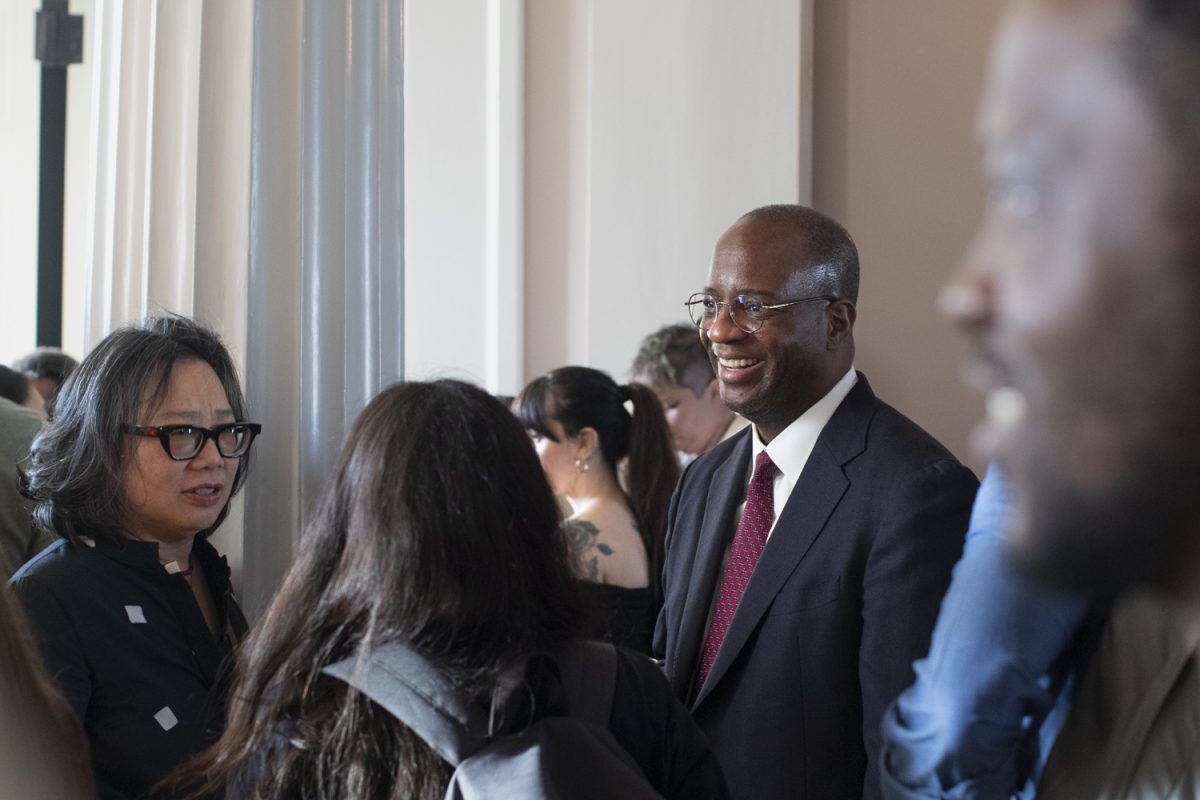In November 2022, writer, educator, and scholar Gene Jarrett’s biographical novel “Paul Laurence Dunbar: The Life and Times of a Caged Bird” finally hit book stands after 15 years of deliberate hard work. Now, the novel is recognized by the University of Iowa’s Truman Capote Award for Literary Criticism. Jarrett spoke to The Daily Iowan before his award ceremony to explain his writing process.
Jarrett is currently the dean of faculty and a professor at Princeton University.
The Daily Iowan: How is this award different from past accommodations?
Jarrett: This one is special because it is recognition for something that I have worked on for a long time. It gratifies me that my colleagues appreciate this work, and I’m grateful it’s having an impact. My colleagues who won this award previously are highly decorated, so it’s special for me to be a part of this legacy of excellence.
Can you share more about where this book started?
I worked on a junior paper focused on Paul Laurence Dunbar in college. He was a poet of the late 19th century, born and raised in Dayton, Ohio. He had descended from Kentucky slaves, and he went on to have an international reputation. He had a fascinating life and was an excellent writer, and I wanted to learn more about him.
What did your research and writing process look like for this project?
I’ve worked on this book for over a decade and a half. First of all, it required a deep understanding of Dunbar’s writings and everything written about him. Then I had to examine his letters of correspondence. He was writing letters to people. People were writing letters to him, and different parties were writing letters to each other about him, and so doing the research in the archives to find all these letters, to paint the discourse that surrounded his name and his life and his literature, that discourse had to be illustrated.
The elements of writing the work required much time, and then there’s the rewriting of it, right? 10 years in I would look at what I wrote in the early parts of the first chapter, and I thought, “Well, this could have been improved.” I always had to be open to strengthening my writing as much as possible.
If you think about your life, who you were 14 years ago is different from where you are today. There were multiple presidential elections, my children were being born, and I was moving houses and changing jobs. Writing any kind of book that takes sustained attention requires you to be focused and stable.
In what ways did Dunbar’s work personally impact you?
It impacted me through his command of the language, his sensitivity to the audience, and the fact that he was African American. He worked in literature when the country was plagued by Jim Crow segregation. The courage that he showed at that time, inspired not only me but generations of writers. It’s also true that he was a complicated individual in terms of how he was temperamental, and how he had a tempestuous relationship with his wife. Some of the moral complexities of his life, not only the intellectual and literary complexities of his life informed how I view the world.
As a writer yourself and a professor of English at Princeton, do you view yourself as part of this legacy and impacting other African American students in the same way Dunbar impacted you?
I do view myself as a professor who has an impact on students, and so the goal of higher education is to ensure that students can learn about new ideas, learn about history, and learn about how to exchange viewpoints with one another. Those are the aspects of being a professor that I cherish very much. As an African American, it’s important to model myself in a way that students [gain] aspiration that enables them to achieve whatever personal and professional goals they have. I welcome that kind of impact.



